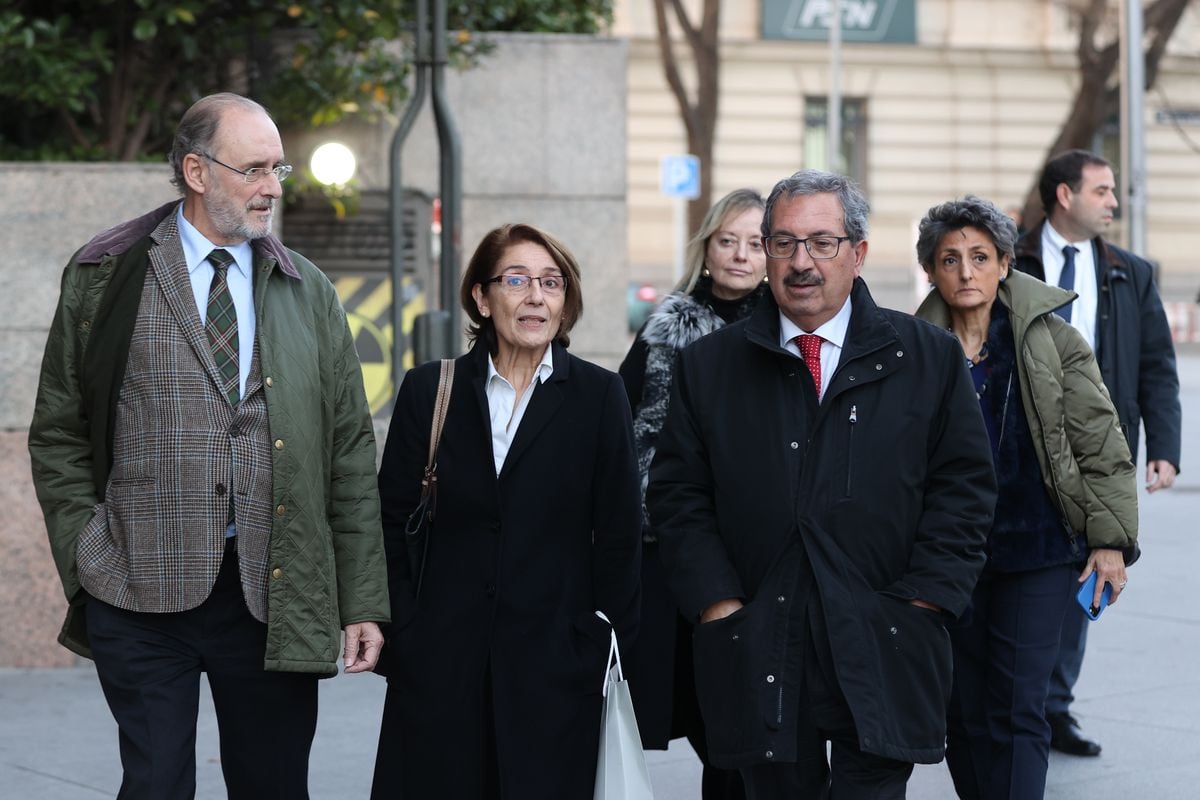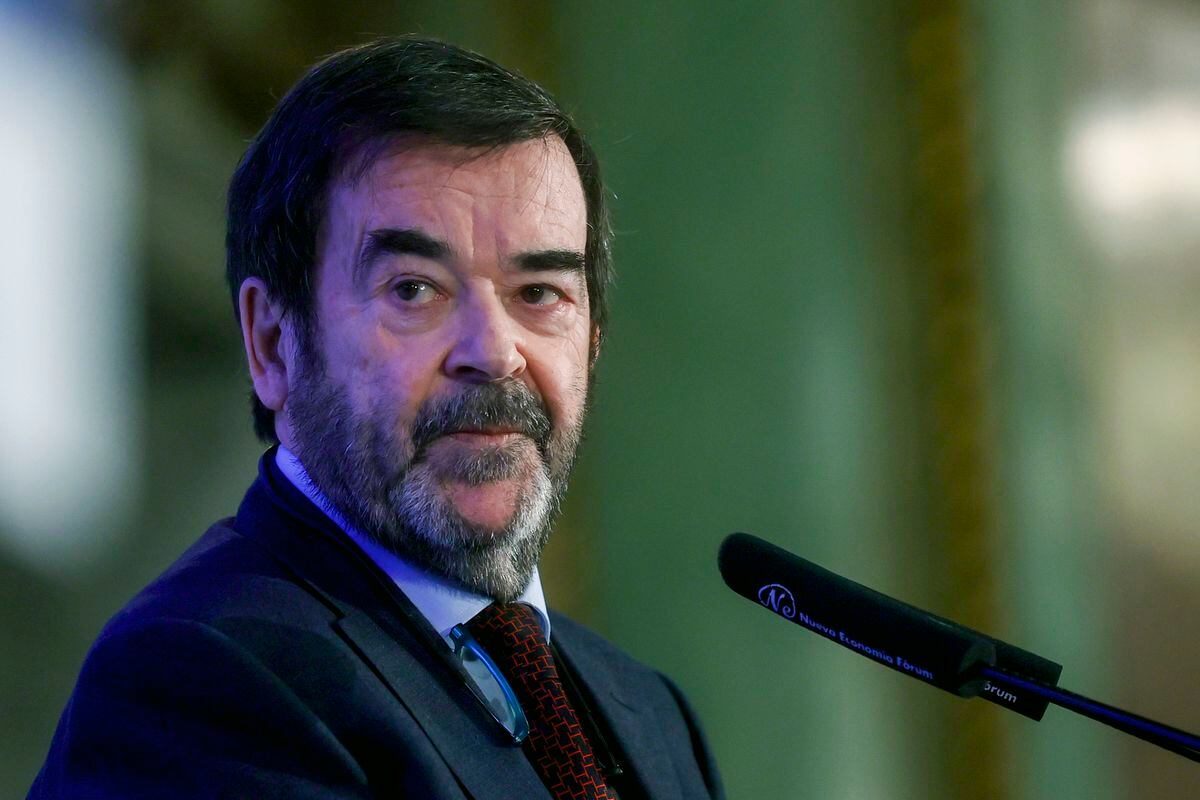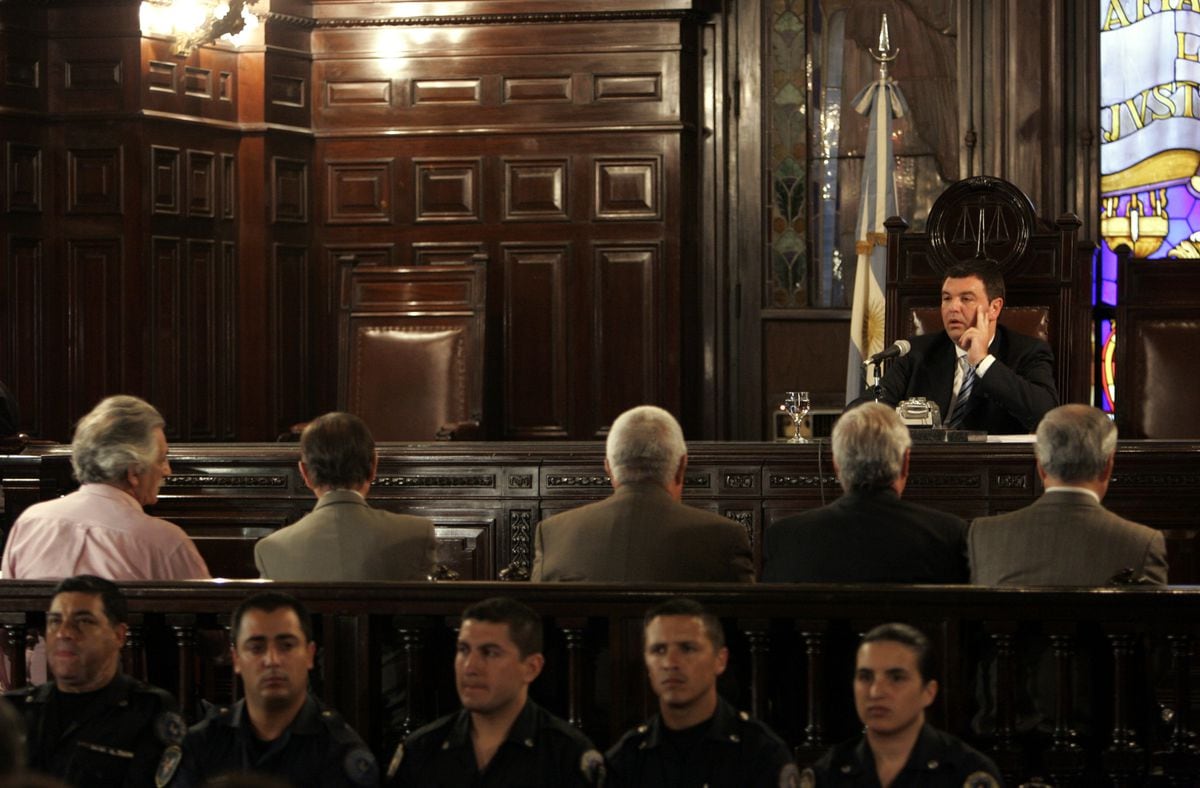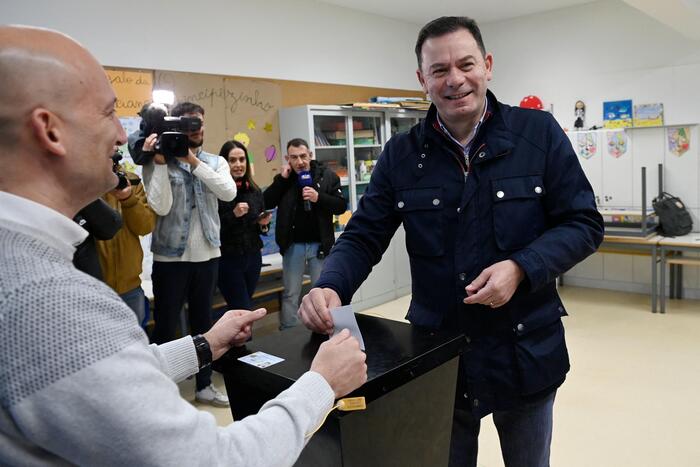The resignation, last Wednesday, of one of the eight progressive members of the General Council of the Judiciary (CGPJ) —Concepción Sáez, elected at the time at the proposal of the IU— has reopened a debate that most of the councilors of the body have spent years shying away: the possibility of an en bloc resignation as a way of precipitating the collapse of the institution and thus forcing its renewal, pending for more than four years.
The current mandate of the CGPJ expired in December 2018 and, since then, some sectors of the judiciary have demanded the collective resignation of its members, but the members have always cooled down that option, describing it as "irresponsible".
Sáez's resignation, however, has caused a fire that no one now expected.
The majority of the progressive block believes that it can no longer be alleviated with water and that there is no other option than to leave to facilitate the demolition.
But few believe that this initiative will prosper.
The next week will be key for the future of the Council.
For the first time since he remained in office —installed in the blockade when the PP resisted negotiating renewal with the Government— its members are divided, in addition to between conservatives and progressives, among those who insist on keeping alive a body that all come dying and those who want to give him the coup de grace.
The debate has arisen among the eight progressive members, of which five —Sáez herself and four proposed by the PSOE: Rafael Mozo, Álvaro Cuesta, Pilar Sepúlveda and Clara Martínez de Careaga— are more open to resigning;
and three —Roser Bach, Mar Cabrejas (both proposed by the PSOE) and Enrique Lucas (by the PNV)— are committed to staying.
But among them there are also nuances and, while some like Cuesta, promoter last Thursday of the idea of a "coordinated" resignation, are clearly in favor of leaving, others have doubts because they are not convinced that his march will have the desired effect.
“Nobody assures us that, if we leave, the Council will be renewed.
It should be like this, it is logical, but here things do not work logically ”, warns a councilor from this sector, referring to the occasions when it seemed that everything was leading to renewal but the PP ended up getting off the bandwagon of the agreement with the government when it was almost up and running.
“The worst that could happen is that all of us progressives would leave and a CGPJ controlled exclusively by the conservatives would remain waiting to see what happens in the elections,”
This fear, which is the one that most of the progressive members have used in recent years to justify their refusal to resign, is the one that is also alleged by the directors of this group who are still reluctant to resign today.
“I am not clear that it was of much use.
Although there is no quorum to form the plenary session, they could continue to function with the permanent commission", underlines a member of this sector, referring to the main decision-making body outside the plenary session and which, in practice, since the CGPJ lost by law his ability to make discretionary appointments while in office makes most of the body's important decisions.
Right now the Council is made up of ten conservative members and eight progressives, including the president (who will be seven when the announced resignation of Sáez materializes).
Just as the law says that the constitution of the plenary session requires a minimum quorum of ten members plus the president —which would lead to paralysis if the eight progressives resign—, there are doubts about what situation the permanent one would be in.
However, there are many decisions that, after being taken by the permanent body, have to be ratified by the plenary and others that are the responsibility of this body alone, such as the approval of the reports on draft laws, the approval of the budget or the resolution of the disciplinary proceedings with more serious sanctions.
No one dares to predict whether the proposal of the vocal Cuesta will be seconded by the entire group —a necessary requirement to leave the plenary session without a quorum—, although the majority believes that this will not happen.
The Association Judges and Judges for Democracy, of a progressive tendency and to which most of the vocal judges in this sector are linked, has once again demanded this Saturday the "immediate" resignation of all the directors.
The opposite, according to the president of this association, Ascensión Martín, will make them "accomplices in an unacceptable situation."
Cuesta's decision to promote the "coordinated" march of the entire group a few hours after Sáez's departure has upset some members of this sector.
"This is talked about slowly, things cannot be done like this," says one of them.
Some admit to being baffled by the fact that the resignation, last October, of Carlos Lesmes, president of the Supreme Court and of the CGPJ since 2013, did not cause a chain reaction and Sáez's could now.
But most of the members consulted also admit that the Lesmes march was seen as a symbol, as a message from the highest office of the Judiciary to the Legislative Power to make them aware of the situation, and that, in fact, it precipitated the last attempt —also unsuccessful— to unblock the CGPJ by the PSOE and PP.
Sáez's resignation, however, is an individual decision, which, in some way, challenges everyone.
Most of the members, including those of his group, found out about his resignation from the press and admit that they immediately saw that the focus was once again on them.
"Neither Lesmes nor Concha [in reference to Sáez] are going to give me lessons in dignity," the vocal Cuesta exclaimed angrily during the meeting of the permanent commission, last Thursday, hours after Sáez's resignation was announced, according to sources of that organ.
A message in which he insisted on the
whastapp
sent after that meeting to the rest of the progressive members: "I am not willing to receive lessons when I feel so tied to this institution due to its non-renewal as those who have already resigned."
But although the Lesmes march did not open the debate on collective resignation within the body, it did, for many, it was the beginning of the process of decomposition.
The appointment as a substitute for the oldest counselor, the progressive Rafael Mozo, was agreed upon as a short-term decision, assuming that the conversations that the socialists and popularists began after Lesmes's resignation would bear fruit.
But that umpteenth failure of the negotiation has lengthened the presidency of Mozo, who, according to members of both sectors, is "comfortable" in the position but does not have the authority that Lesmes had.
Neither among the members of his group nor among the conservatives, who are waiting for Mozo to retire in July when he turns 72 and be replaced by a conservative member,
Subscribe to continue reading
Read without limits
Keep reading
I'm already a subscriber












/cloudfront-eu-central-1.images.arcpublishing.com/prisa/KMEYMJKESBAZBE4MRBAM4TGHIQ.jpg)


